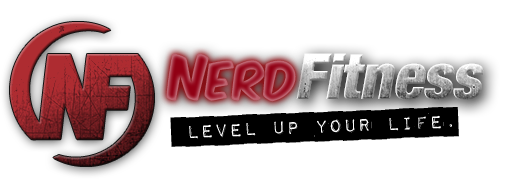-
Posts
15 -
Joined
-
Last visited
About Shadowsinger
-
Rank
Newbie
- Birthday November 13
Character Details
-
Location
Winnipeg, MB
-
Class
rebel
-

Not this damn dungeon AGAIN
Shadowsinger replied to Raincloak's topic in Rebel Introductions and the Respawn Point
Let me preface by saying that IRL, I'm an employment facilitator. In English, that means I write resumes and cover letters and help people figure out how to answer awkward interview questions. I sometimes moonlight as a career counselor and help people figure out how to bridge the chasm between what they're good at, what matters to them, and actual rewarding work. I walk people through online applications. I am NOT in Human Resources. I am the person who helps people get through the rigamarole to GET in front of a Human Resources person. Advice is the one free thing nobody wants; so feel free to ignore or disregard. But we don't really go in for "traditional" job search at my workplace, so you might get a few ideas that better fit your style. One company who is doing some really interesting stuff around alt-job-search is a place called Human Workplace. The general philosophy (I won't get into it for a page, you can go read) is that instead of begging someone to give you a break, you approach it as providing a valuable service that nobody else can to solve a business problem, or as they call it, a pain. http://www.humanworkplace.com/how-to-write-your-human-voiced-resume-2/ Stop thinking in terms of finding a job. I tell my clients that it's generally more effective to make a list of COMPANIES and either (a) watch for jobs that fit you and will get you in the door or (b) approach them directly with a cover letter and resume or (c) develop a work proposal for a gap in services that you see and suggest you work together to CREATE a position. http://cannexus.ca/wp-content/uploads/2014/04/Beyond-Traditional-Job-Development-CANNEXIS-JOBDEV.pdf http://www.jcfswinnipeg.org/documents/WinnipegJCFSTopTenTipsforaStrategicJobSearchbyDeniseBissonnette.pdf Changing the focus from looking for work to looking for a place you fit is usually very empowering for my clients. You can figure out what companies have the CULTURE you want (hey, tea at my desk, tshirts, jeans on Friday, listening to work when I'm doing data entry) and then go after them instead of wasting a bunch of time on jobs that, let's face it, you don't want. A lot of this flies in the face of traditional job search, which is fine. If traditional job search worked for more than 15% of the population, we'd have a lot happier staff in the world. I'm an introvert. I loathe traditional networking. I haven't worn a skirt to an interview in years - I'm with you on the hose - and I buy men's dress shoes and nobody seems to notice. I look at all interviews as "good training" (military term) and always send a thank you card and ask for feedback. Looking for work when you are being forced to, especially when it triggers anxiety, is really hard. Like Torment Six hard. Try to be gentle and practice as much self care as you can. Best of luck to you. -Shadow- -
As someone who has struggled with this off and on for about fifteen years - I can only speak to my own experience and others' mileage may vary: 1) Your medication matters. I started out on Paxil, which made my BPD and anxiety disorder (concurrent with the depression) so much worse that I sounded like Yoda. That sounds funny on the surface, but when you write for a living, being unable to construct a gramattically correct sentence is horrifying. Then we switched doctors and got me on Celexa which worked fab for about four years. Then I built up a tolerance. We tried Effexor and it left me in a position of self injury. We tried Wellbutrin and I didn't sleep more than half an hour a night for 28 days. Finally I got on Rememron, which really helps me because it's a SEDATIVE, and I can take it at night and it helps me sleep as well as fixing whatever in my brain just doesn't make the chemical normal people get that tells them killing themselves is a bad idea. If you are on meds and they don't work, it can make living your life and having energy to do anything REALLY HARD. 2) Your life structure matters. If it's too hard to be at work or to work out, then take up volunteering or a hobby or something. Lack of structure seems to make depresssion worse because I have nothing to focus my attention on except how depressed I am. Not. Helpful. I got into a weekly support group for anxiety disorder that I sort of had to arrange my life around as a pivot point Get up and go to bed at the same time every day. Get enough sleep (for me that's about eight hours). 2a) If you can't make yourself do it for you, make the commitment to someone else. Paying for one training session a week out of my meager funds meant I felt obligated to get the other two workouts in every week so I wouldn't be wasting my money. External accountability, as long as it's done in a way that is supportive and encouraging, can be helpful. My partner and I work out on the same days every week so we can keep each other honest, even though we have totally different workouts. 3) Your emotional support structure matters. I made a list of seven people I trust that I can call if it all goes south. Getting out of the house - as much fun as it is, spending 7,326 hours a week playing RockBand with my online friends isn't real human socialization, and I've learned that I need that. Sometimes I can't handle talking, but I'll go to my local coffee joint with a book and drink tea and be around other human beings in meat space. I try and do at least one social event a week with someone who understands and cares about me. I limit the time I have to spend with people who don't get it or figure I just need to get over it. 4) Your food matters. When I'm depressed, I either stop eating (not good), or I eat crap. SO I have to make more of an effort to keep easy to make healthy food around the house. No, Lean Cuisine, Pizza Pops and Healthy Bowls aren't the best options, but they beat the pants off eating a whole bag of chips and a tray of dip, or two rows of Oreos.I live on cheese toast and garlic sausage sometimes. It's food. There's sort of protein involved, and it's still better than candy. I have to force myself to eat when it's bad. I'll try and punish myself for being fat and ugly by skipping meals and then end up gorging. 5) Your other concurrent conditions matter. I have PCOS. I'm failrly sure I have hypothyroid as it runs in the family (I'm at 4.1, but in Canada, tha's not bad enough for treatment). I suspect I have sleep apnea. Other things that are going on alongside my "depression" can make it harder to get through the day. Get tested. Learn the normal ranges. Demand to see your numbers. I tracked my food and found I usually ate about 1400-1600 calories a day, which as a 5'5" woman meant something else had to be going on to cause the weight creep - it's how I got on Metformin for the polycystic and the insulin resistance. 6) Don't try to do everything at once. I started with food (don't we all) and didn't even add any kind of exercise until nearly a year in. I started with walking back and forth to work. Then I joined a gym. Then about a year in, I started working with a trainer. Then I completely buggered my leg, have an ACL brace and it's all gone to &^%$, but that's a whole other thing. 7) Talk it out. Write it out. But somehow get what you feel out of your system. As the old gag goes, therapy works, but screaming is cheaper. Understanding why I feel what I feel, recognizing catastrophic thinking, learning to communicate from a place of personal integrity instead of from my hidden agenda or my parent/child, learning to fight fair, learning assertiveness skills - these were all huge for me. I found the following book immensely helpful while I was undergoing CBT, you might too: http://www.amazon.com/Messages-The-Communication-Skills-Book/dp/1572245921 Externalizing my emotional state helps me to recognize and question the thoughts and behaviors that hurt me It helps me to learn to respond differently, to make choices from a place of awareness instead of reaction. 8) Learn to be present in your body. Like most geeks, I spend most of my life above my collarbone. I look at my workouts as an opportunity to be present and mindful in my body. After all, when I'm learning to clean and press a 35lb empty barbell, if I don't pay attention, I get bruises or pulled tendons. I do a lot of work with breathing exercises and self care, like weekly hot soaks with music and a good book and a nice bag of smelly bath salts. This book and associated workbook / CD has also been helpful in understanding why I can't 'fix' my depression and why trying to figure out why I can't just get over myself is not helpful: http://www.amazon.com/Mindful-Way-through-Depression-Unhappiness-ebook/dp/B007T9FZRS I look at my gym time as "let's explore what I can make my body do this week". I try not to have a hard goal or be angry with myself if I don't make immediate progress in some way (like losing weight). That's hard, because I suck at patience, but I try to think in terms of another rep or another plate or another five minutes. I read on the elliptical. I've discovered that the cable rower is very meditative for me, so I'll do that for twenty minutes and just practice breathing or lip-sync to my music. Hopefully some of that helps. The very first thing I need to do is be gentle with myself. Sometimes I don't have enough "spoons" to make it to the gym,. and I don't beat myself up over it, as long as I remember to go next time (never two in a row, as Steve says). Spoons: http://www.butyoudontlooksick.com/category/the-spoon-theory/ =Shadow=
-
*hangs her damp, snow-dusted cape on a hook near the door and settles into a chair by the fireplace* Winnipeg here, although just between us, I have about had it with the land of the ice and snow for one year. *picks up the gittern that someone else has left on the mantle and begins picking out a soft lullaby on its strings* -Shadow-


